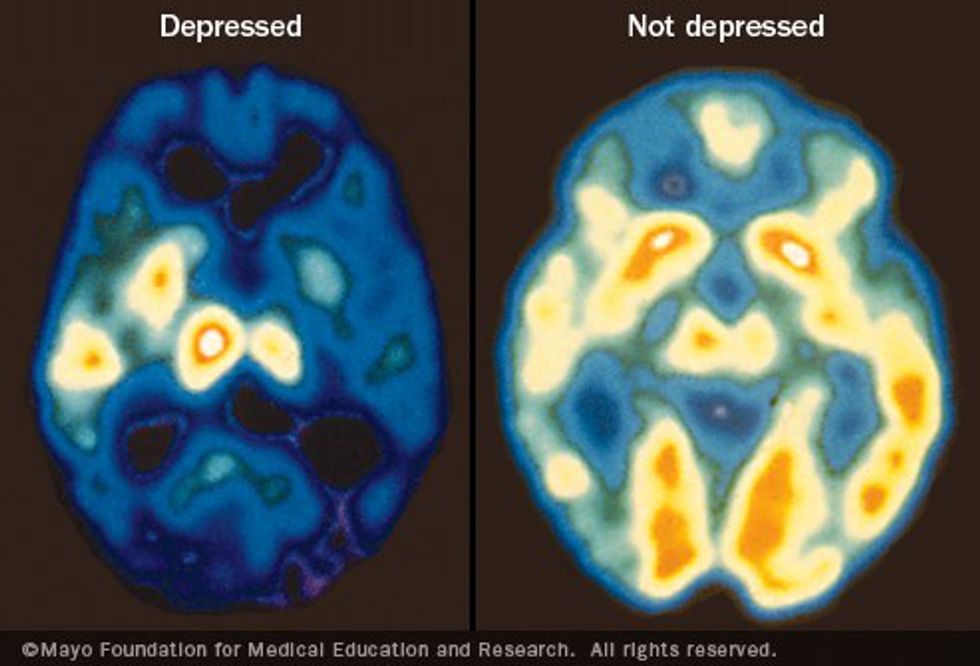Mental illnesses are prominent in today's society, yet they are not receiving the talk that they deserve. This is because there is a certain stigma surrounding them; they may be thought to be too abnormal or scary to talk about. Those conflicted with a mental illness may be too afraid to tell others and receive the treatment they deserve. This taboo probably dates back to whenever science was unrefined and the causes and treatments of psychological disorders were unknown. They thought them to be related to demonic possessions or the female menstrual cycle and would take horrific actions in order to treat them: one of the most inhumane being drilling a hole in the head of those conflicted in order to "let the spirits out". Fear derived from how mental illnesses were viewed in treated in earlier times. However, society has greatly advanced and we know more about mental illnesses and yet, there is still a stigma remaining. Why?
Mental illnesses do not discriminate; given certain circumstances, anyone has the ability to develop a mental illness. In fact, 1 in 5 adults are affected by ranging psychological disorders every single year. Chances are, you know someone who is battling one. Yet, so many of us do not understand general psychological disorders. Often, people will use a mental illness to describe a personality trait of another or themselves, which diminishes their debilitating nature. Someone may jokingly say that a very organized person has "OCD" or call a skinny girl "anorexic". However, these stereotypes are not what the mental illness entails. Simply being organized or thin does not inherently mean they are suffering a psychological disorder. Oftentimes those who suffer from anxiety are told not to worry about the things they worry about or those suffering from depression may be told to "just cheer up". People often do not realize that a mental illness is much more complex than simply being worried or feeling sad. This downplays how psychological disorders may manifest in someone's life and that is not fair. Society may know generally about these mental illnesses but do not understand how they work.
First off, for a mental illness to be diagnosed, it must be considered atypical, maladaptive, and unjustifiable. Everyone experiences anxiety from time to time, however, someone who has been diagnosed with General Anxiety Disorder (GAD) experiences a constant state of excessive anxiety over everyday things. There are many different treatment methods for various psychological disorders; from therapy to medication to surgery. The process of diagnosing and treating mental illnesses are very complex. There are plenty of people out there who do not understand psychological disorders and that is okay, everyone has to learn sometime. But it is absolutely not okay to downplay or claim that someone's mental illness does not exist.
Because depression is much more than just being sad. (you can see the manifestation of many other mental illnesses in brain scans)
Psychological disorders are far too complex for the average person to fully understand; even psychologists are still discovering new information about them. However, they are very real and far more common than we may think. It is unfair for us to be fearful of the topic of mental illness; it is unfair to turn the other cheek. You wouldn't joke about physical illnesses, so don't joke about mental illnesses. We have made much progress concerning psychology and mental illness awareness, and yet we still have so far to go. It is important to treat mental health just as important as physical health and to continue to learn. We must cultivate an acceptance and understanding of psychological disorders and treat all people with respect and kindness despite the presence or absence of a mental illness. Remember that people are not their mental illness, they are conflicted with it.

























